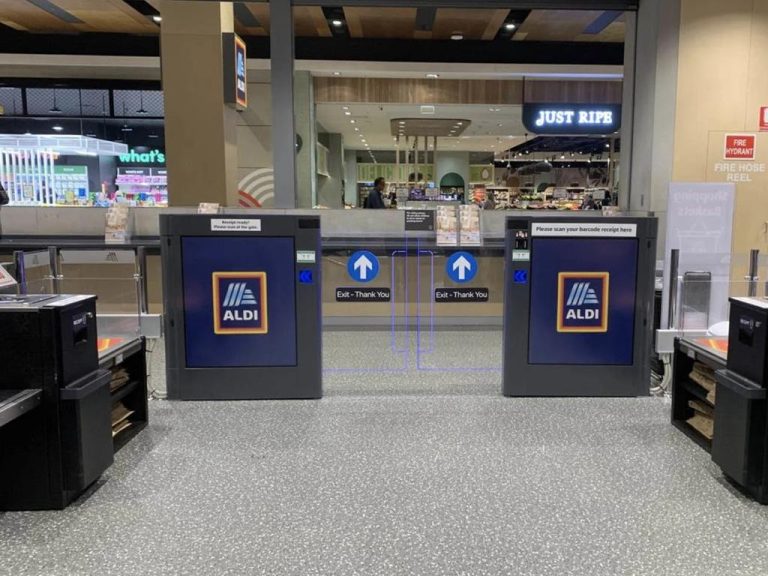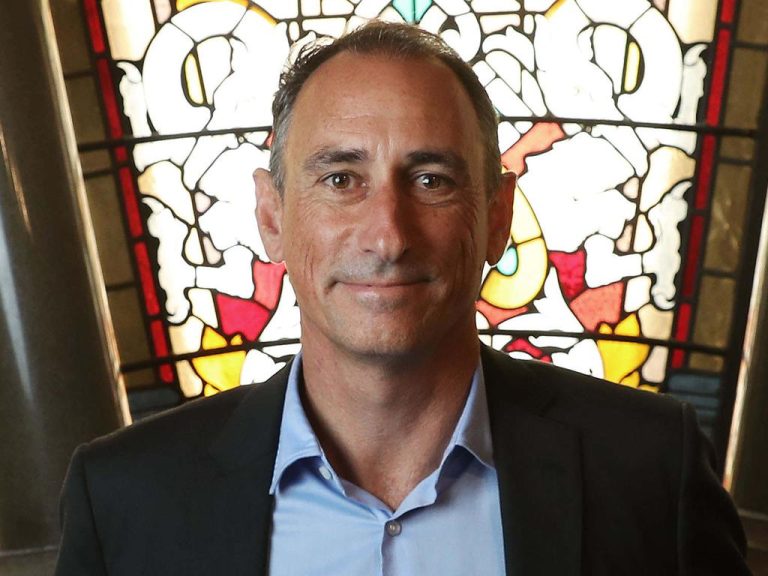Meriton’s Harry Triguboff reveals plans for luxury Brisbane waterfront hotel
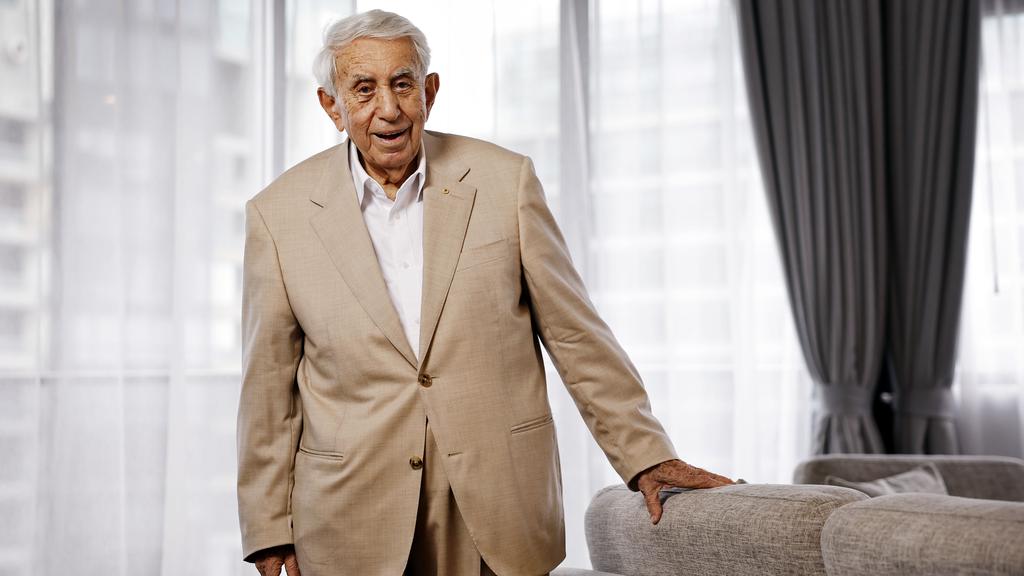
Billionaire property developer Harry Triguboff at Meriton Tower on Kent St in Sydney. Picture: Sam Ruttyn
Billionaire apartment tycoon Harry Triguboff is defying slow foreign tourist arrivals and a lacklustre domestic holiday market as he expands his hotel empire.
Mr Triguboff’s Meriton has just been anointed as Australia’s top-ranking hotel owner and one of the top operators across the country. He has now declared he will embark on an expansion drive.
In an interview with The Australian, Mr Triguboff said he would definitely be building more serviced apartments.
“I am starting one now in Brisbane in the best position on Alice Street. Brisbane is not like Surfers (Paradise on the Gold Coast); there are not many waterfronts. This one has a waterfront and the beach and everything,” he said.
Fresh CBRE research of 40 hotel owners and operators covering up to 1500 hotels and more than 200,000 rooms reveals Meriton remains the top-ranked hotel owner with 23 properties or 6200 rooms, followed by Salter Brothers with 34 hotels or nearly 5000 rooms and Sydney-based Jerry Schwartz’s 15 hotels encompassing 4300 rooms.
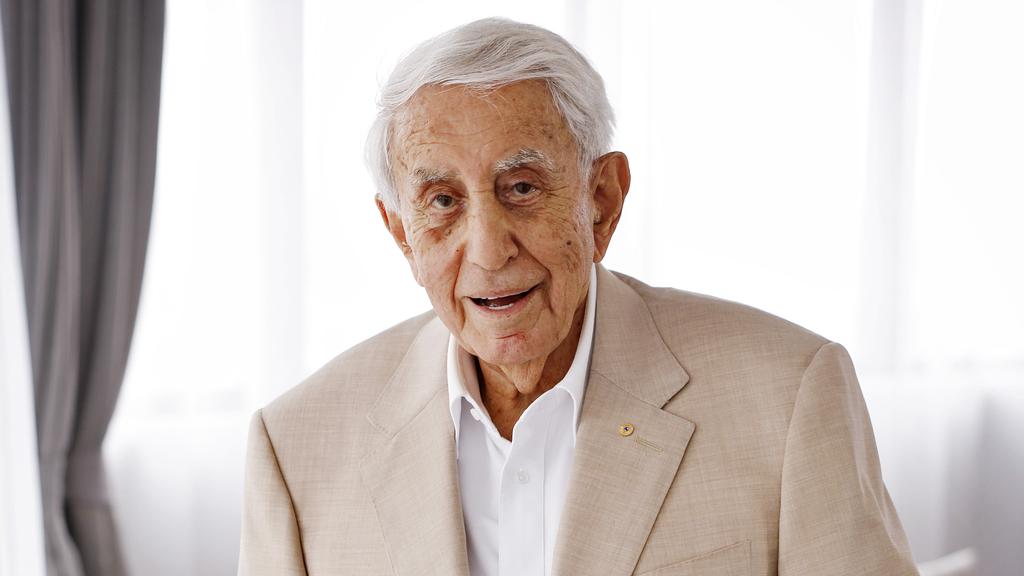
Billionaire property developer Harry Triguboff. Picture: Sam Ruttyn
Mr Triguboff said he was also concentrating on building more apartments because the “councils here in Sydney are becoming normal – they used to be crazy. For four years I did not buy land.”
Mr Triguboff said he was glad Meriton was the biggest hotel owner, attributing his success to building larger serviced suites, allowing guests to have plenty of space. He said $300 was the average room rate, adding that because the Meriton Suites apartments were so big, people could share.
But the key change in the rankings from one year ago is that Singapore-owned Millennium and Copthorne has improved one place from eight to seventh on the top-10 list of hotel owners following its acquisition of Christchurch’s Mayfair Hotel – a move that expanded the group’s portfolio to 18 hotels or 3148 rooms.
The 10-largest owner is Iris Capital which is presently attempting to buy a casino and Pullman Hotel in Cairns. Iris owns 22 hotels encompassing 2441 rooms.
On the operator front, French hotel giant Accor retained its 20-year-long leadership position with 65,075 rooms under management, followed by IHG with 13,382 rooms and EVT with 12,728 rooms.
Meriton was ranked the ninth-largest apartment manager in Australia.
CBRE’s head of hotels research Ally Gibson said sentiment data reveals a cautiously optimistic outlook for the sector only hampered by operational pressures such as labour force shortages.
“Following a strong post-pandemic rebound, the hotel sector has stabilised and for the most part is posting modest RevPAR gains. While headwinds such as operational costs and macroeconomic volatility remain in focus, the hotel sector remains underpinned by long-term growth fundamentals characterised by a positive outlook for inbound demand growth and a contracting new supply pipeline.”
CBRE’s regional director, hotels valuation & advisory, Troy Craig, said demand fluctuations and barriers to new development were also noted as primary concerns over the next 12–24 months.
“When it came to external factors, geopolitical instability, economic uncertainty, and shifting consumer behaviour was cited as having the most significant impact on the hotel sector in 2025/2026,” he said.
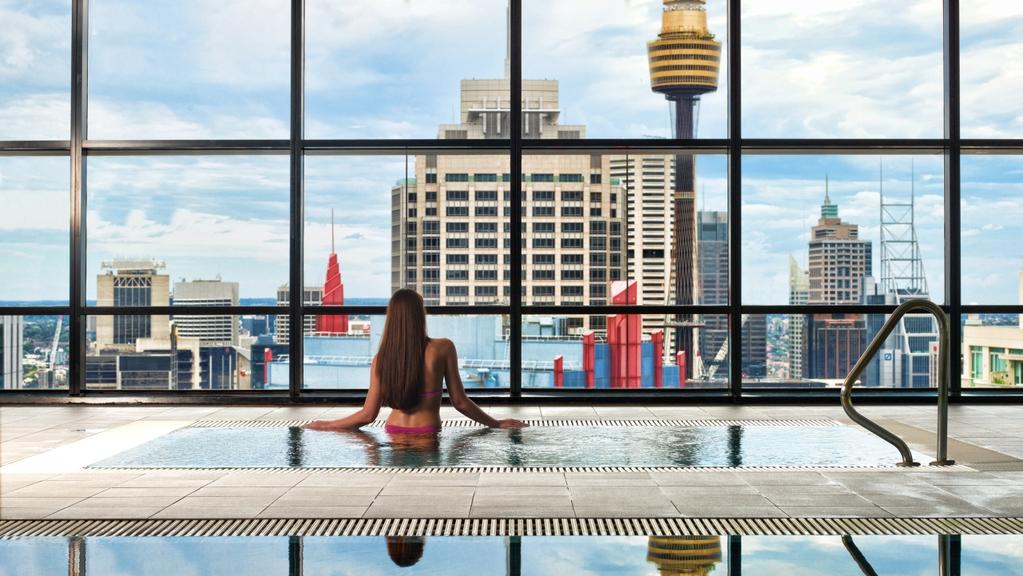
Meriton Serviced Apartments World Tower in Sydney. Picture: Supplied
Key findings from CBRE’s sentiment survey reveals 84 per cent of respondents believe the overall outlook is somewhat optimistic for the second half of this year and into 2026, reflecting confidence in long-term fundamentals despite near term operational headwinds.
Nearly 65 per cent of respondents said they were planned to expand their portfolios through acquisitions or new developments, with others focusing on renovating or repositioning assets and diversifying into alternative hospitality ventures.
Sydney was the market with the strongest growth potential according to 64 per cent of respondents, with 36 per cent of the respondents nominating Brisbane given the city’s constrained supply pipeline, growing events calendar and major infrastructure investment ahead of the 2032 Olympic Games.
In terms of driving more growth this year and next year respondents said luxury hotels and resorts were voted as the segment to drive the most growth, followed by extended stay accommodation and business/conference hotels.
Nearly 75 per cent of respondents foreshadowed a slight increase in average daily rates and revenue per available room over the next 12 months following a strong recovery in the past two years.
On occupancy rates, 63 per cent of respondents anticipate occupancy to increase slightly by one to five per cent over the next 12 months, 27 per cent expect rates to remain stable, and 9 per cent anticipate a slight decrease of one to five per cent.

